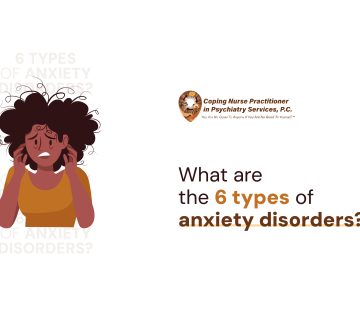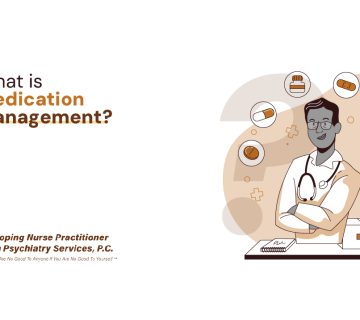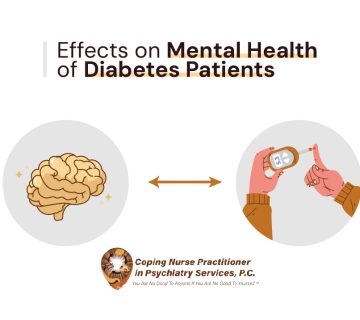As a mental health practice of the Christian faith, I want to remind you that Christmas is about exemplifying Christlike behaviors of kindness, honesty, trustworthiness, having good values and ethics, love for your fellow men, respect, generosity, compassion, forgiveness, not being hypocritical, and being humble. Yes, forgiveness is crucial, but it does not mean you accept or agree with what was done to you. In forgiveness, God still holds others accountable and responsible for the consequences of their actions. A road for forgiveness means that you have chosen to let go and let God be the judge of it all. It also means that you accept that you may not always get an apology, but you don’t want to continue being held hostage to anger and being upset about the wrong done to you. The Bible says in the NIV version of Deuteronomy 32:35 that “ It is mine to avenge; I will repay. In due time their foot will slip; their day of disaster is near, and their doom rushes upon them.”
I had experienced a period in my life where my cousin and I were arguing when I was in my 20’s. I ended up slapping her, and I truly regret it. I apologized and truly meant it, but I couldn’t take back the slap. I made sure I never repeated that behavior. I realized that I was wrong despite whatever argument we were having. I had no right to slap her, and I was remorseful. I also know sometimes wrong can be done to you too. I know you might say, “Dr. Vansiea, you don’t know what that person did to me or understand.” Trust me, I get it. I had a cousin almost choked me to death, had family members jump me to fight in my home, had people say that I will not amount to much, had family members call me crazy, had family members exclude me from functions, and had husbands lie and cheat on me. I have also had close family members exclude me from planning close relatives’ homegoing due to anger and hatred. Saying all of this, the moral of the story is, “Let God continue to work on healing you because Dr. Vansiea is also a work in progress herself.” I am in this profession to make a difference because I have experienced many things in my journey, including discrimination, chronic medical illnesses, depression, suicidal thoughts, and anxiety. In addition, my father had a mental illness. My life is a living testimony, and this year I almost died from Covid-19 in January.
The weight is too heavy to carry being angry and hateful with retaliation in life. The Bible also says in the KJV of Matthew 5:44 that, but I say unto you, Love your enemies, bless them that curse you, do good to them that hate you, and pray for them which despitefully use you, and persecute you.”
The key is speaking your truth in how you feel to the ones who hurt you if the opportunity presents itself and once it is safe to do so. You can also articulate it in a letter to God. Never allow your mental and physical health to be compromised by others while loving them. It’s important to know your worth, too, and not allow others to devalue you because that is not love. The Bible’s depiction of love is not rendering evil for evil and praying for those who hurt us, but we must also not put ourselves in harm’s way either.
Now, let’s talk about self-care needs this holiday and crucial things to watch out for at this time of the year. Self-care needs are also healthy ways to cope with life challenges in order to maintain balance and wellness. This holiday season, there may be sadness if we have lost friends and relatives that may have gone to be with the Lord, such as Dr. Vansiea herself lost both grandparents this year. This will be the first Christmas without them. Let’s remember to tap into others when grieving to talk, such as trusted family members, friends, or mental health providers like Dr. Vansiea. Let’s acknowledge the dead by reflecting on memories, writing tributes, visiting gravesites if you can, and/or writing a goodbye letter to your loved ones. Also, please do allow yourself to feel because death hurts. Remember that they are gone but never forgotten.
There are some common stressors if left unresolved in life that can lead to contributing factors (exacerbating or accelerating an issue) of mental illness such as:
- Finances poor money management
- Relationship problems due to poor communications, trust, or infidelities (breakups, separations, and divorce)
- Family (poor boundaries and poor communications)
- Job or no job
- death/loss
- Domestic violence and abuse
- Chronic medical conditions
- Loneliness
- Lack of support or no support system
- Racial inequality and discrimination
Let’s also be our brothers’ and sisters’ keepers by recognizing some symptoms of depression and suicide listed below with some interventions. For example, depression is a mental health disorder characterized by persistently depressed mood or loss of interest in activities, causing significant impairment in daily life.
In the anxiety and depression association of America facts & statistics of 2021, it is stated that Major Depressive Disorder “affects more than 16.1 million American adults, or about 6.7% of the U.S. population aged 18 and older in a given year.” (https://adaa.org/understanding-anxiety/facts-statistics
Some symptoms of depression over a two weeks period or more are:
- Changes in sleep and appetite
- Lack of concentration
- Loss of energy
- Lack of interest in activities
- Hopelessness or guilty thoughts
- Changes in movement
- Physical aches and pains
- Suicidal thoughts
Warning Signs of Suicide:
- Severe sadness or depression
- Hopelessness
- Lack of sleep
- Sudden calmness after severe depression
- Changes in appearance
- Harmful behavior
- Trauma or life crisis
- Preparations
- Talking about suicide
What Should You Do if you See the Warning Signs of Suicide?
If you believe someone you know is in immediate danger of killing themselves…
- Do not leave the person alone. If possible, ask for help from friends or other family members.
- Ask the person to give you any weapons they might have. Take away or remove sharp objects or anything else that the person could use to hurt themselves.
- If the person is already in psychiatric treatment, help them to contact the doctor or therapist for guidance and help.
- Try to keep the person as calm as possible.
- Call 911 or take the person to the nearest emergency room.
- Call your local suicide prevention hotline or the Substance Abuse and Mental Health (SAMHSA) National Suicide Prevention Hotline at 800-273-TALK (8255).
Types of Self-Care and Ways to Cope
Personal Self-Care
- Hygiene with a warm shower, bath, and brushing teeth
- Smelling and looking good, moisturizing
- Hair and Facial Hair Grooming (Hair Care)
- Pampering yourself and getting finger and toenails done
- Relaxing massage
- Acquiring shelter/housing for one’s self
- Keeping home clean and getting chores done
- Dressing appropriately for the weather and wearing clean clothes
Physical Self Care
- Good nutrition and balanced meals
- Limiting fast food intake and preparing more healthy meals
- Limiting soda and caffeine
- No drugs and alcohol
- Exercise
- Enough water intake
- Finding the right primary care doctors and specialists to develop partnership within treatment
- Sleep and rest
- Seeing the dentist for regular cleaning, tooth repair and to address other dental hygiene problems, such as mouth odor and decays
- Routine eye checks and follow-ups
- Seeing a doctor when you are sick
- Weighing pros and cons with benefits and risks in getting Covid-19 vaccine
- Social distancing and wearing a mask
- Understanding and weighing the benefits and risks of any medication or medical procedure
Mental/Emotional or Psychological Self-Care
- Identifying stressors and triggers in life
- Practicing self-love
- Exercising and mental health walks
- Self-reflections
- Good sleep hygiene and getting adequate sleep and not eating high carbohydrates, drinking caffeine, or eating sweets at night along with alcohol or drugs will affect your sleep.
- Practicing adequate time management and knowing when to rest, and learning when to say No
- Gaining insights and awareness of choices, relationships, and growth
- Reaching out for professional counseling and mental health treatment when needed
- Identifying and asking for help with mental illness and alcohol or drug problems and knowing when you are no longer a social drinker or user
- Developing healthy ways to cope with life trials and tribulations
- Understanding the negative consequences of alcohol and drugs on the body
- Developing a healthy support system because no man is an island
- Establishing healthy relationships, knowing roles, and establishing boundaries
- Developing meaningful romantic relationships
- Speaking life and positive affirmations to self and others
- Breaking taboos and unrealistic limitations and expectations
- Learning what you have control over and what you don’t have control over
- Realizing every reaction to an action may have a consequence
- Connecting with a mental health professional to talk b/c no man is an island again
- Starting medication if needed and recommended by a mental health provider once weighing the benefits and risk
- Music and art therapy
- Developing interests and hobbies
- Understanding that it is okay to agree to disagree respectfully and you can’t make everyone happy, nor can everyone make you happy, so hold on to things that are meaningful and fulfilling and let go of other things.
- Journaling and/or writing to process your feelings
Spiritual Self-Care
- Know who guides your life
- Understand that there is a physical being greater than you
- Be one with self
- Get in tune with the voice of God in making decisions
- Develop a prayer life
- Helping others
- Having a purpose, vision, and dream and working to make it a reality with God being your helper
- Taking leaps of faith, staying hopeful, and knowing that God is with you
- Take to heart as the scripture says in Jeremiah 29:11, “For I know the plans I have for you declares the Lord, plans to prosper you and not to harm you, plans to give you hope and a future”
- Turn your worries into worship
- Realizing that some disappointments and challenges can be blessings to the next step or level of your life
- Knowing that God’s hands are over our lives and He wants us as people of faith to seek out help for mental and physical health needs
- Understanding that your body is the temple of God
- Connecting with your leaders of faith and ministers/pastors when needed
- Virtual or in-person church (if safe to attend in person)
- Making wise decisions and having informed knowledge to make informed decisions
- Proverbs 2:6 “For the LORD gives wisdom; from his mouth comes knowledge misunderstanding.”
Socialization Self-care
- Finding hobbies and interests
- Getting involved in organizations
- Hanging out with friends or associates once safe to do so (we must remember that we are still living in a pandemic)
- Continuing to stay connected but not isolated even while living in a pandemic
- Take safe getaways and vacations
Professional Growth and Development Self-Care
- Find purpose by creating short-term (3-6 months) and long-term (1-5 years) goals or 90, 6 months, and 12 months action plans in your life.
- Choose your profession for the right reasons (enjoyment and happiness versus for lots of money)
- Take a professional career assessment to see where you fit for a career or profession.
- Obtain education and training
- Live by professional moral and ethical codes
- Remember my tagline that states that “you are no good to anyone if you are no good to yourself.”
Financial Self Care
- Understanding the value of credit
- Investments
- Learning when to say No to putting things in your name for others at times
- Understanding limitations at times when help given is never enough
- Savings
- Good budgeting
- Paying attention to debt to income ratio
- This has been a good learning process well learned for me along my journey with curveballs, and it’s still a work in progress for me.
- Be careful with helping others to your detriment.
I wish you a Merry Christmas and a Prosperous New Year. Please continue to stay faithful and hopeful during this holiday season. I pray that 2022 will be a better year for you and your family.
Much love and prosperity. Take care.
Dr. Judy E. Vansiea





No comment